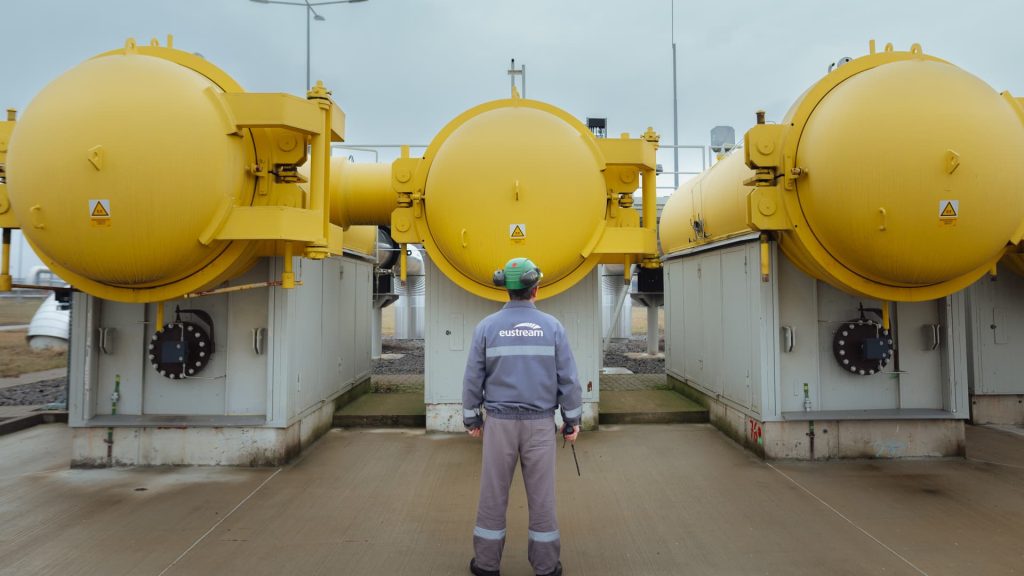A worker carries out maintenance tasks at the Eustream gas facility on February 25, 2025 in Velke Kapusany, Slovakia.
Robert Nemeti | Getty Images News | Getty Images
The European Union on Thursday launched a fresh round of sanctions against Russia for its war in Ukraine, joining the U.S. by targeting Moscow’s energy infrastructure.
The package of measures, which member states approved on Wednesday evening, includes a ban on Russian liquefied natural gas (LNG) imports.
It comes shortly after U.S. President Donald Trump, in a major policy shift, announced new sanctions against Rosneft and Lukoil, two of Russia’s largest oil companies.
Trump told reporters on Wednesday that he felt it was the appropriate time to impose the measures, describing the sanctions as “tremendous” before adding that he hoped they wouldn’t be in place for long.
Kaja Kallas, the EU’s high representative for foreign affairs and security policy, welcomed the Trump administration’s sanctions on Russian oil companies, describing the policy as a “signal of strength.”
Speaking to CNBC’s “Europe Early Edition” on Thursday, Kallas said: “It is really depriving Russia of the means to fund this war and this is necessary to end this war.”

In a social media post, Kallas added that the EU’s latest sanctions package would target Russian banks, crypto exchanges and entities in India and China, among others.
European Commission President Ursula von der Leyen, meanwhile, said the bloc’s 19th package of sanctions, which were formally adopted on Thursday, would keep “the pressure high on the aggressor” of the Russia-Ukraine war.
“For the first time we are hitting Russia’s gas sector — the heart of its war economy. We will not relent until the people of Ukraine have a just and lasting peace,” von der Leyen said on Thursday.
Danish Foreign Minister Lars Lokke Rasmussen said the EU’s latest sanctions were a “decisive step” toward stopping Russia’s biggest revenue source of oil and gas, adding that U.S. sanctions on top will have a “severe impact” on the Russian economy.
The EU’s sanctions agreement, which took weeks to conclude, comes just hours before Ukrainian President Volodymyr Zelenskyy joins his European counterparts for a one-day summit in Brussels, Belgium.
Oil prices pop
Oil prices jumped more than 3% on Thursday morning, extending gains from the previous session.
International benchmark Brent crude futures with December expiry traded 3.3% higher at $64.66 per barrel, while U.S. West Texas Intermediate futures with December expiry stood at $60.46, also up around 3.3%.

Tamas Varga, an analyst at PVM Oil Associates, described Trump’s move to sanction Rosneft and Lukoil as “significant,” saying it is the first time Trump has sanctioned the Russian oil industry.
“The market reaction was understandably bullish. It must be noted, nonetheless, that whenever Russian producers were targeted in the past by the EU or by the G7, there have always been willing offtakers of Russian oil,” Varga told CNBC by email.
“Sanctions on oil suppliers are most effective when coupled with pressure on consumers. For this reason, India’s decision to significantly reduce its purchases of Russian oil is almost as significant as the US-imposed measures on Russian oil companies,” he added.

